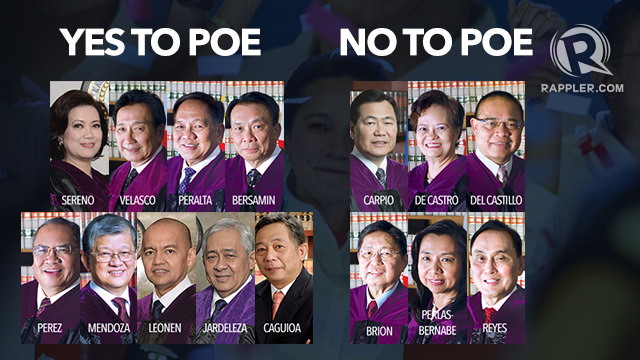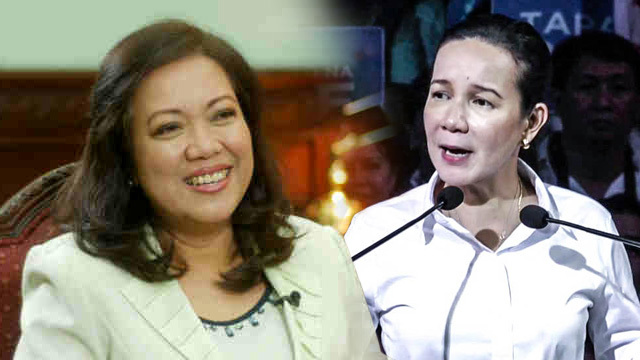PREZ Digong has pronounced five top police honchos as guilty. Which prober, prosecutor or judge would now dare contradict and embarrass him? A Prez is pledged “to do justice to every man.” The presumption of innocence is enshrined in our Bill of Rights and the Declaration of Human Rights. We have to go by other than relying on accidentally unfortunate surnames like LOOT and PagDILAO.
Nixon said on Aug. 4, 1970 that Charles Manson, et al. were guilty of the grisly murder of glamorous celebrity Sharon Tate, et al. The accused, American Bar and others quickly and loudly protested. Press Sec. Ron Ziegler scrambled to stage a presscon and said his Boss failed to use “allegedly” and in effect retracted what Nixon had said. For a detailed account of the incident, in civilized America, one should read Vincent Bugliosi’s and Curt Gentry’s Helter Skelter (1974).
I await how our Integrated Bar of the Philippines, the Commission on Human Rights, media, law firms and faculties, individual legal practitioners, and the general public would react in our arguably decaying polity. The Supreme Court would soon crawl with Digong’s appointees.
He talks too much. He should let ex-Sec. Bingbong Medialdea, Justice Sec. Vit Aguirre and Communications head honcho Martin Andanar grab or share the mic with him, and take bullets. Never mind fellow scofflaw PNP chief Bato de la Rosa.
Our Prez we’d all like to succeed, for everyone’s sake. He may choose not to stand on ceremony. Within reason. He must not disrespect the Constitution and due process. As he grossly did last Tuesday, again aping Macoy, who condemned by publicity Ninoy, et al. (including Ka Pepe Diokno, who was not even charged at all).
Yes, to due process, no to shame campaign by trial and conviction by publicity.
Anyone’s name and dignity matter. And had the Disgraced Five not been PMAers but ordinary folk, the body count would have risen. The Quintet should realize how lucky they are still to be in the Land of the Living, not being poor, obscure and powerless. Kinakaya.
Quintet?
It tore away my heart by the roots not to be able to watch, last Tuesday, Team France, from the land of Mlle. Edith Piaf’s and her haunting La Vie En Rose and where they kiss a woman’s hand, “cuz mon ami, you have to start somewhere.” I had to be elsewhere to make boundary (but saw in a lobby that France was ahead by only two points at the half; mirabile dictu!). I had wanted to cheer myself hoarse for our team.
Maybe cheer with the same effervescence that funeral parlors and memorial park owners, florists and sepultureros exhibit for the new administration’s population reduction programs. The cops seem have known all along who to send to the Promised Land or where an adversary is told to go. They are on an adieu spree. One entertainable raison d’etre: dead men tell no tales. You’re from the PMA? You get warned, and shamed, but you remain in this vale of tears, with more lagrimas to shed, thanks to a seemingly reckless Prez.
Maybe cheer with the same effervescence that funeral parlors and memorial park owners, florists and sepultureros exhibit for the new administration’s population reduction programs. The cops seem have known all along who to send to the Promised Land or where an adversary is told to go. They are on an adieu spree. One entertainable raison d’etre: dead men tell no tales. You’re from the PMA? You get warned, and shamed, but you remain in this vale of tears, with more lagrimas to shed, thanks to a seemingly reckless Prez.
I am waiting to hear the answer to my question: Where in the universe has a hard-line policy against drugs succeeded? Judicial and extrajudicial executions would not matter if profit remained high. No one may repeal the law of supply and demand. Hard line only improves the bargaining power of scalawags in a lucrative trade.
Users are sick to be rehabbed, not criminals to be shamed (as is done in Tanauan and China) and killed (all over here).
The eye-for-an-eye-rape-the-rapist death penalty does not validate the supermarket theory of the criminal law: that felons carry a copy of the Revised Penal Code, as amended, look at the penalties, to see what crimes he could afford. “Ah, bitay ito, ‘wag na lang. Dito na lang tayo sa life term, mga katoto.”
Shorter time in jail if hanged by the neck till dead. The way blacks would get it from the whiteys.
More time in Manila for Prez Digong? Absent in the Palace flag ceremony last Monday? Why? In Dreamland? Not a morning person? And whose aircraft is he using flying to and from Davao? His? A crony’s? If the latter, such would violate a fiat of his apparent idol, Macoy, whose good PD No. 46 punishes both giver and receiver of favors and gifts when the latter is in government. Digong, in our fraternal public-interest view, should attend flag ceremonies, and should change himself, not others or the system.
OK, yes to constitutional change. It may be done thru a 1) Convention (Con-Con) 2) People’s Initiative (PI) 3) Constitutional Assembly (Con-Ass) 4) Ordinary legislation with a higher vote. The people will vote on a draft in a plebiscite anyway.
And yup, 5) A constitutional amendment via a Supreme Court (SC) ruling, which is not subject to a plebiscite. Rene Corona’s post-midnight appointment was challenged but the SC came out with a mangled ruling validating it; the people overruled the SC via impeachment. Bribery? A year after the vote? ‘Di po kaliwaan? Hahaha.
Anyway, the stark reality or lesson is, the Consti is what the SC says it is. Here, in People v Pomar, on Nov. 3, 1924, it ruled unconstitutional the law on maternity leaves as violative of the right to contract. Today, not only allowed, but there’s paternity leave even. Lamang ang mga Estrada at Revilla. Can one imagine Prez Digong availing himself of it? Makamandag at kilabot pa kuno. And we, like the French, are not bothered the way Kanos are. A French Premier was buried with his wife and kulasisi marching side by side during the final, funeral walk. Liberte, egalite, sororite.
In the US, blacks were chattels per a Supreme Court headed by Catholic (first ever) Chief Justice, Roger Taney, in Dred Scott v Sandford (1856); then separate but equal in Plessy v Ferguson in 1895; then equal, in 1954 in Brown v Board of Education (cannot segregate white and black in public schools). Today, that Black Lives Matter remains a rousing 2016 battle cry.
Do courts make laws? Yup, said one American judge, “I do it all the time.” In fact, the SC can tell a lawmaker whose statute is in question, “Mr. Lawmaker, this was what you meant when you wrote the law.” Indeed, one man’s belief may not be superior to the perceived common will of the legislature.
Changes? Review the Judicial Bar Council concept. I want to see term limits removed.
You cannot have enough of a Lorenzo Tañada. What has happened is that the elected official may park the position in his spouse, kulasisi, or children.
You cannot have enough of a Lorenzo Tañada. What has happened is that the elected official may park the position in his spouse, kulasisi, or children.
Thus, the Royal House of Duterte in Davao City. Sara is on leave as Mayor. So, her brother, Vice Mayor Pulong takes over. Family parlor game. I am the only one raising another foolish question of the day, aren’t I?
PNP Chief Bato challenged drug lords to a duel last month. Why hasn’t he been charged for violating Art. 261 of the Revised Penal Code? For challenging to a duel or scoffing at another for refusing to accept one. We cannot have a Government by Braggadocio and Bluster by Mayabangs, Hambogs at Palalos.
Ordinary folk get no second chance at all.
Again, the French. De Gaulle said the cemeteries are full of Indispensable People.
Here, if you are ordinary, you get graveyard priority treatment from the constables and the gendarmes. No warning.
Here, if you are ordinary, you get graveyard priority treatment from the constables and the gendarmes. No warning.
Cemeteries in Ampatuan Country are full of indispensable people. But it should not be taken against any lawyer for handling any case ethically. He should take seriously the presumption of innocence under our Bill of Rights and the Universal Declaration of Human Rights, for which Digong does not seem to care.
Panyero Sal Panelo should not be begrudged for once-upon-a-time lawyering for the Ampatuans. Or that I handled cases for controversial clients. Even if Mother Teresa were my client, I’d remain the horned devil I am, fighting haloed critics. We in MABINI handled many controversial cases, for Nat-Dems, Soc-Dems, Let-Dems and Gad-Dems. So? DFA Secretary Perfecto Yasay, to me, remains Digong’s only Perfect appointee, his being former Banco Filipino counsel, notwithstanding.
But the only Perfect Justice is another Bedan—Justice Gregorio PERFECTO!
Again, let us see whether this combo of those who attended San Beda Law (Leni was my grad law stude) can lead us to Deliverance, with our help and prayer, or deeper into the wilderness, if Digong and Bato will continue to believe na sila lang po ang magaling.
Arrogance of Power, we don’t need.
source: Manila Times Column of Rene Saguisag


